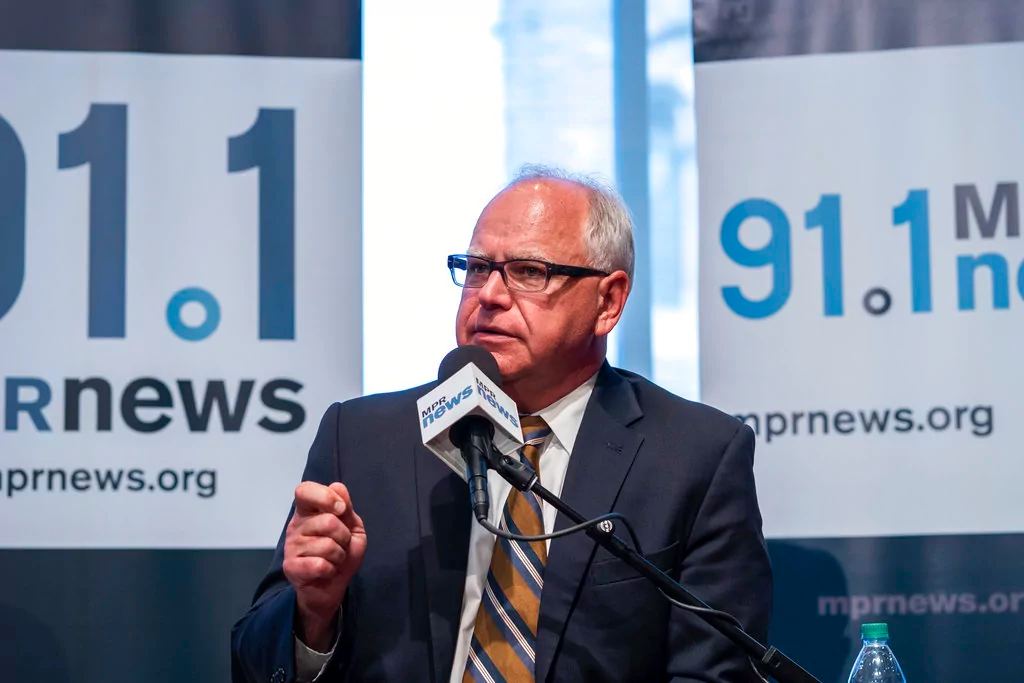Eric Thompson Show Podcast
In a landmark policy shift, Florida Governor Ron DeSantis has implemented significant reforms aimed at curbing the state’s expenditure on free healthcare for undocumented migrants.

This legislative change, lauded by conservative circles as a necessary measure to protect state resources, has sparked a contentious debate across the political spectrum.
The reform, which was signed into law earlier this month, specifically targets Medicaid spending on undocumented migrants, effectively limiting their access to state-funded healthcare services.
Governor DeSantis has been a vocal proponent of stringent immigration policies, and this latest move aligns with his broader agenda of enforcing stricter immigration controls and reducing the financial burden on Florida taxpayers.
“Florida’s Medicaid program was never intended to cover those who are in the country illegally,” DeSantis remarked during a press conference. “This reform is about prioritizing our resources for Floridians and ensuring that our healthcare system is sustainable for those who contribute to our society.”
Fiscal Responsibility and State Sovereignty
The fiscal impact of this reform is substantial. According to the Florida Agency for Health Care Administration, the state spent approximately $500 million on healthcare services for undocumented migrants in the last fiscal year. This expenditure, critics argue, diverts funds from programs designed to assist legal residents and citizens.
The new reporting system has confirmed a 54 percent drop in Medicaid spending since the law took effect last year, according to Politico.
Supporters of the reform emphasize that it is a necessary step towards fiscal responsibility and upholding the rule of law. “It’s about time we address the misuse of our state’s resources,” commented State Senator Blaise Ingoglia, a Republican from Spring Hill. “Florida taxpayers should not be footing the bill for individuals who have broken our immigration laws.”
Impact on Healthcare Providers
The reform has significant implications for healthcare providers in Florida, particularly those operating in regions with high populations of undocumented migrants. Hospitals and clinics that have relied on Medicaid reimbursements for providing care to this demographic are now facing financial uncertainties.
Dr. Maria Lamas, a physician at a community health center in Miami, expressed concerns about the potential public health consequences. “Many of our patients are undocumented and rely on Medicaid for essential healthcare services. This reform could lead to a public health crisis if these individuals are forced to forgo necessary medical care.”
However, proponents of the reform argue that it will encourage undocumented migrants to seek alternative avenues for healthcare, such as federally qualified health centers (FQHCs) which are designed to serve underserved populations regardless of their immigration status.
Broader Political Implications
Governor DeSantis’s move comes at a time when immigration policy remains a hot-button issue nationwide. The reform is widely seen as a strategic maneuver to solidify his standing among conservative voters and potentially bolster his position for a future presidential run.
Political analysts suggest that this policy could set a precedent for other states grappling with similar issues. “DeSantis is making a bold statement on state sovereignty and the importance of enforcing immigration laws,” noted Dr. Richard Hasen, a political science professor at the University of California, Irvine. “This could very well inspire similar legislative efforts in states with significant undocumented populations.”
Opposition and Legal Challenges
Despite the strong support from conservative quarters, the reform has faced vehement opposition from immigrant advocacy groups and some healthcare professionals. Critics argue that the policy is both inhumane and shortsighted, potentially exacerbating public health issues and leading to higher long-term costs.
“Cutting off healthcare access to vulnerable populations is not only morally reprehensible but also counterproductive,” stated Marleine Bastien, Executive Director of the Family Action Network Movement. “When people can’t access preventive care, they end up in emergency rooms with more severe conditions, which ultimately costs the system more.”
Legal challenges are expected as advocacy groups prepare to contest the reform on grounds that it violates federal mandates requiring emergency medical treatment for all individuals, regardless of immigration status.
Conclusion
As Florida implements these sweeping changes to its Medicaid program, the state stands at the forefront of a contentious national debate over immigration and healthcare policy.
Governor DeSantis’s reform is poised to significantly reshape the landscape of healthcare access for undocumented migrants, drawing both praise and criticism from various quarters.
The long-term impact of this policy remains to be seen, but it is clear that the conversation around immigration and state-funded healthcare is far from over.

Gov. DeSantis, the only smart gov. in America!!! Thank you!
Let them go back home for their healthcare if we’re so horrible.